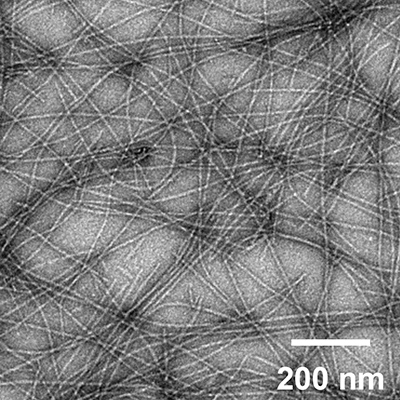September 10, 2020 -- Adjuvants are often added to vaccines as a method for promoting an immune response in recipients. But what happens when that immune response goes haywire, causing too much inflammation? Researchers believe that adding an "immune potentiator" to adjuvants that strengthens the immune reaction and modulates excess inflammation could lead to vaccines that are better tolerated in humans, according to a September 9 article in Science Advances.
A major challenge in developing new approaches to vaccines is designing them to boost the activation of the immune system -- leading to better protection from viruses -- while limiting excess inflammation. Adjuvants, such as toll-like receptor (TLR) agonists, are commonly used to boost immune responses.
These molecules activate the innate immune system to promote expression of an array of immune genes including inflammatory cytokines and cell surface receptors. However, excess inflammatory response can be induced by overactivation or systemic distribution of adjuvants. In these cases, inflammation can lead to overabundance of proinflammatory cytokines.
With TLR activation, nuclear factor kappa B (NF-kB) primes the transcription of proinflammatory cytokines (tumor necrosis factor-alpha; TNF-α and interleukin-6; IL-6) and cell surface receptors (major histocompatibility complex II; MCHII, CD40, CD80, CD86).
In the new paper, researchers from the Pritzker School of Molecular Engineering at the University of Chicago hypothesized that modifying the function of adjuvants by decoupling TLR pathways and NF-kB activation through selective inhibition using an immune potentiator (strengthener of immune reactions) could lead to improved tolerability while maintaining adaptive immune responses.
Choosing an immune potentiator
NF-kB transcription factors contain two subunits: a DNA binding domain and a transcriptional activation. Some dimers broadly control inflammatory gene expression while others control antigen presentation.
As a proof of concept for immune potentiation, the researchers selected SN50, a cell-permeable peptide that consists of the nuclear localization sequence of the NF-kB subunit p50 and that blocks import of p50-containing dimers into the nucleus. In this way, SN50 can act as a partial selective NF-kB inhibitor. The protein is also thought to inhibit NF-kB for a relatively short period of time.
The researchers began by verifying that SN50 could enable antigen-presenting cells to upregulate cell surface receptors while limiting proinflammatory cytokine production in vitro. They noted a decrease in TNF-α and IL-6-expressing cells, an increase in CD86 expression, and sustained expression of CD40.
In vivo, coadministration of CpG, a TLR9 agonist, with the immune potentiator resulted in significantly reduced proinflammatory cytokines and threefold increase in IgG levels of antibodies for ovalbumin (common reference protein commonly used for vaccination experiments).
Does immune potentiation improve known infectious disease vaccines?
To explore the effectiveness of the approach, the researchers used mouse models of several diseases including influenza, dengue, and HIV. Coadministration of the immune potentiator with the 2017/2018 flu vaccine (Fluzone) improved tolerability by reducing side effects associated with excess inflammation and enhanced protection against influenza. Likewise, coadministration of SN50 with CpG and dengue capsid protein led to elimination of systemic TNF-α and IL-6 while maintaining neutralizing antibodies.
Lastly, when the immune potentiator was administered with CpG and gp120 (HIV viral coat protein), the researchers identified increased serum immunoglobulin G (IgG) and IgA antibodies and a shift in epitope recognition that could help design antibodies against conventionally difficult to reach epitopes. This suggests an additional benefit of immune potentiation, where altered epitope selectivity can potentially elicit specific and tunable responses for vaccines and immunotherapies.
"This could lead to a new way of designing vaccines," said the lead author, Aaron Esser-Kahn, PhD, associate professor at the University of Chicago, in a statement. "It goes against the traditional view that increased inflammation is necessary, and in doing so it provides even more protection. It's more beneficial than we could have hoped."
Do you have a unique perspective on your research related to vaccine design or immunology? Contact the editor today to learn more.
Copyright © 2020 scienceboard.net








